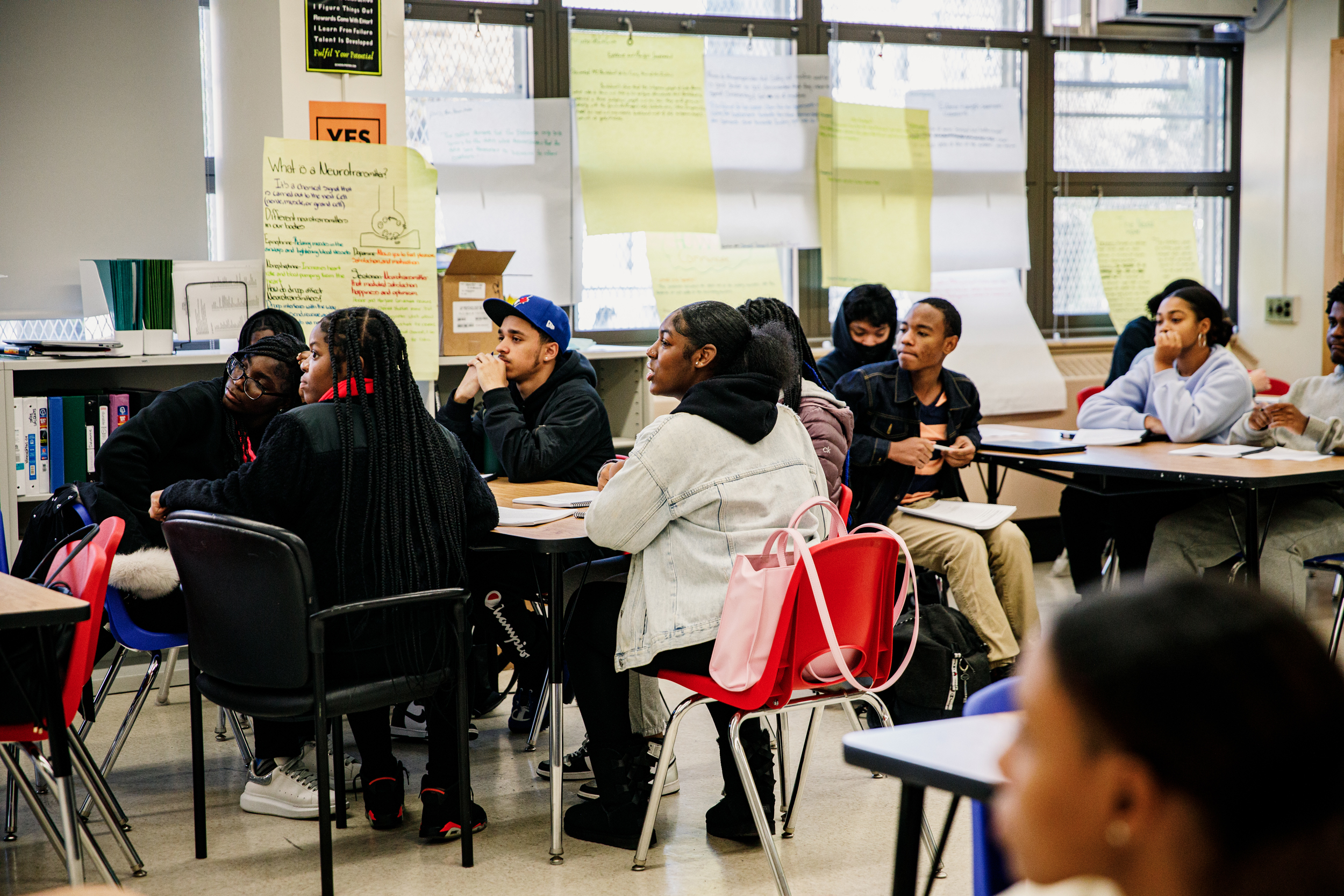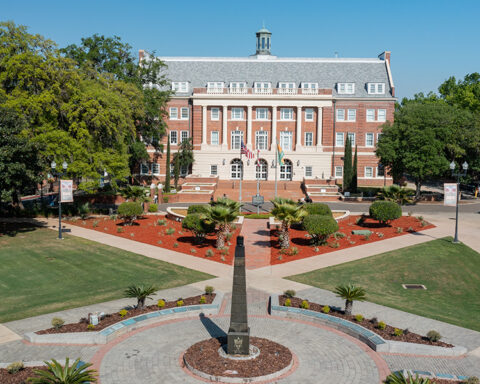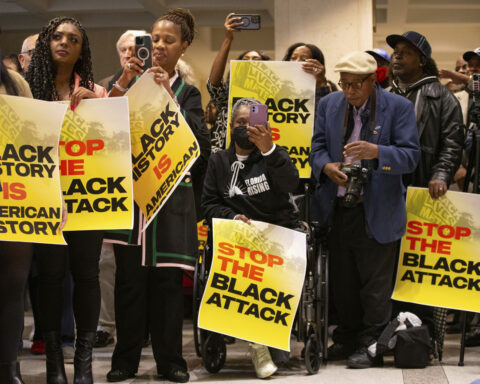By Janelle Griffith
In June 2020, after the killings of Ahmaud Arbery, Breonna Taylor and George Floyd galvanized racial injustice protests globally, Brooklyn Preparatory High School organized a forum for its staff and the predominantly Black and Hispanic student body to share their thoughts and express their feelings.
“Those three deaths specifically had an effect on all of us, but also specifically our students,” said J.P. King, a history teacher and the chief experience officer at the New York City school, “and our administration and teachers prioritized hearing what students had to say about it.”
The forum, held via Zoom as the Covid pandemic disrupted education, was open to the entire school and included a panel of staff members and students. What came from it was an outpouring of emotions — as well as a general frustration from students about not seeing themselves enough in the curriculum, King and administrators said.
With the help of their assistant principal and the backing of the AP for All initiative of the New York City Department of Education, students and staff launched a petition calling for African American Studies to be among the College Board’s Advanced Placement offerings. After a two-year push, the school is now among 60 across the country participating in a pilot program launched this fall for AP African American Studies — at a time when teaching about race is under assault across the United States.
Amirah Riddick, 17, of Brooklyn, who was among the students who advocated for the course to be added to Brooklyn Prep’s AP offerings, described it as “a game changer.”
“A lot of our history classes, we learn about white history like Europeans, like colonization, and a lot of things like that,” said Riddick, a senior who hopes to study journalism at Northwestern University. “And I feel like us being mostly Hispanic, mostly African American students, mostly Caribbean students, we don’t get to learn a lot about our cultures and the ways that we were thriving. We learn more about the ways that we were confined like in slavery, and just how we were treated.”
During a recent class, Brooklyn Prep Assistant Principal Shannah Henderson, who teaches the course, had students work in small groups to analyze the poem “Heritage” by Countee Cullen. She said her role is primarily to remind the students “about the different perspectives, and the different voices” and to manage the different cultural expectations of the children, in keeping with the course design.
If not for her, the program may not have come to Brooklyn Prep.
Henderson has been the school’s AP coordinator for a decade and said in that time, she has “had the privilege of hearing the students’ complaints” about which AP classes they didn’t have. In June 2020, King helped her draft a pair of tweets addressed to the College Board, demanding a course that speaks to their students’ “history, heritage, culture, lives and experiences.”
Henderson said Trevor Packer, the senior vice president and the head of the AP Program and the instruction division, responded.
“And what he said was, there was interest in doing it from the College Board, but they found it was not enough interest from universities. So they were still working on it,” Henderson said.
Sometime last year, she said, she learned about the pilot program but Brooklyn Prep had not been invited to participate. So she again contacted Packer. “I said, ‘Hey, we did the petition, remember us?’ And we got into the pilot program,” she said.
Asked what it required to be considered for the pilot program, Henderson said: “Interest and support from your school district. And your principal obviously.”
Henderson traveled to Howard University in July to be trained on how to teach the course. She said that because she doesn’t have a degree in African American studies, she was also required to take online courses at the Gilder Lehrman Institute of American History.
The College Board has said that the course had been a decade in the making. Henderson credited Packer with being receptive to her students and their petition and said that she believes the racial reckoning of 2020 and the rise of student voices and activism during that time “definitely helped to put up a spark in a fire.”
In response to an interview request from NBC News, the College Board said it recently published a set of principles for all AP courses making clear that students will encounter evidence, weigh competing viewpoints, and come to their own conclusions.
“AP students are never required to agree with a particular opinion or adopt a particular ideology, but they are expected to analyze different perspectives,” it said in a statement.
AP African American Studies is multidisciplinary, drawing from literature, the arts and humanities, political science, geography and science. The course is expected to be available to all interested high schools in the 2024-25 school year, once colleges and universities have confirmed their credit and placement policies for the course’s AP exam, the College Board said.
“As with all AP courses in the humanities, it is not a theory course; students instead immerse themselves in primary sources,” it said. “The course is designed to encourage students to examine each theme from a variety of perspectives, without ideology, in line with the field’s tradition of debates.”





